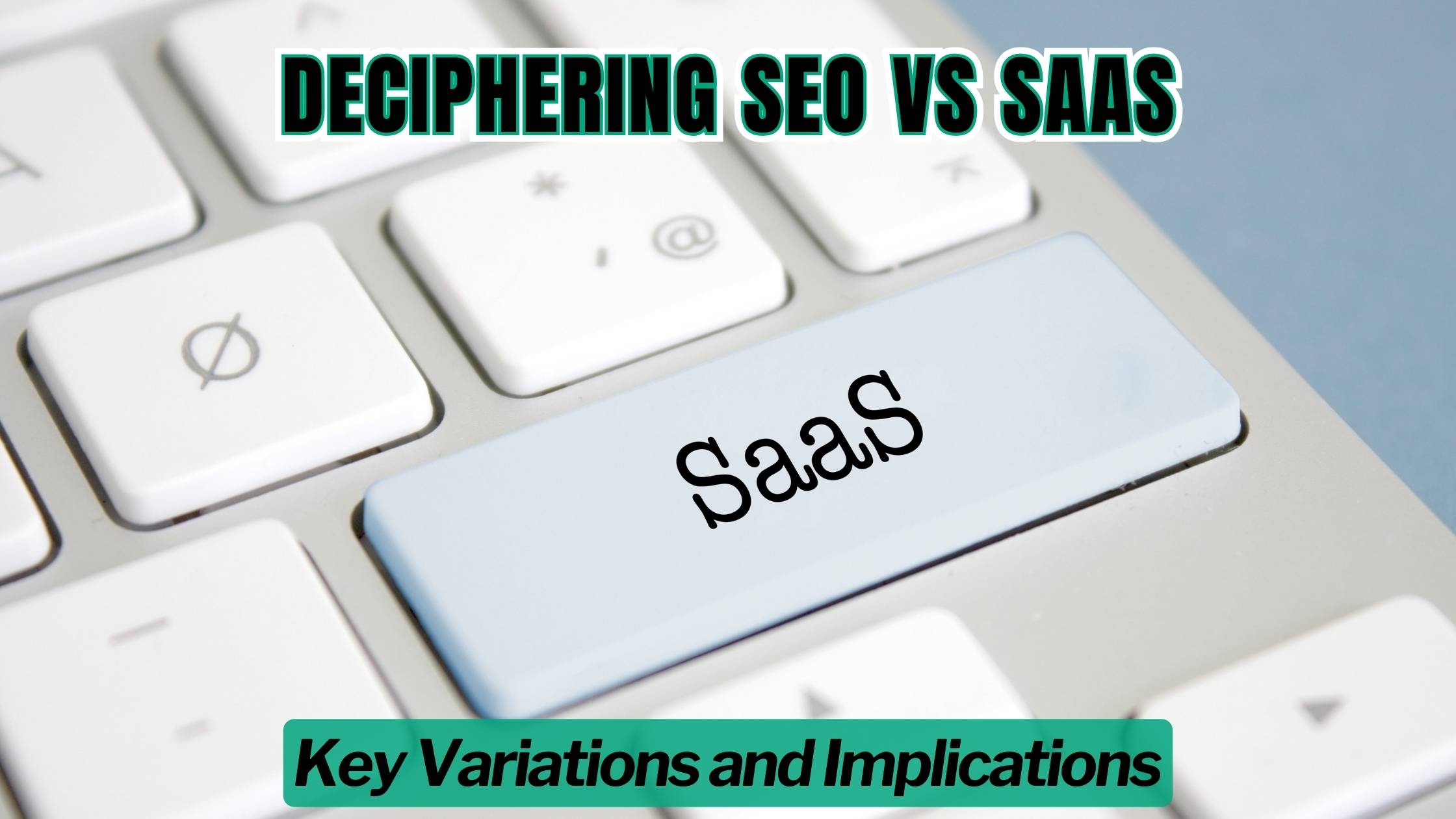Deciphering SEO vs SaaS: Key Variations and Implications
- Conversational Marketing Software SEO Software Affiliate Marketing Software Marketing Tools


Certainly! Here’s the revised article with proper formatting for a WordPress blog post:
Deciphering SEO vs SaaS: Key Variations and Implications
In the dynamic realm of digital business, understanding the distinctions between SEO (Search Engine Optimization) and SaaS (Software as a Service) is paramount for success. While both concepts are integral components of modern online operations, they serve distinct purposes and carry unique implications for businesses. In this comprehensive guide, we delve into the nuances of SEO and SaaS, exploring their key differences and the implications they hold for organizations aiming to thrive in the digital landscape.
Understanding SEO
SEO encompasses a set of strategies and techniques aimed at enhancing a website’s visibility and ranking on search engine results pages (SERPs). By optimizing various elements such as content, keywords, and backlinks, businesses can attract organic traffic and improve their online presence. SEO is indispensable for businesses seeking to increase their online visibility, drive targeted traffic, and ultimately, boost conversions and revenue.
Understanding SaaS
On the other hand, SaaS refers to a software delivery model where applications are hosted on cloud servers and accessed by users over the internet. Unlike traditional software solutions that require installation and maintenance, SaaS applications are typically subscription-based and offer on-demand access to software functionality. SaaS revolutionizes the way businesses operate by providing scalable, cost-effective, and agile software solutions tailored to diverse needs and industries.
Key Variations between SEO and SaaS
While both SEO and SaaS contribute to the digital ecosystem, they differ significantly in their focus, functionality, and implementation:
- Focus: SEO primarily revolves around optimizing website content and structure to improve search engine visibility and attract organic traffic. In contrast, SaaS focuses on delivering software solutions to users over the internet, streamlining operations, and enhancing efficiency.
- Functionality: SEO encompasses a broad spectrum of strategies, including keyword research, content optimization, and link building, aimed at improving website ranking and driving organic traffic. Conversely, SaaS applications offer diverse functionalities ranging from project management and customer relationship management to accounting and collaboration tools, catering to specific business needs.
- Implementation: Implementing SEO involves ongoing efforts to optimize website elements, create high-quality content, and adapt to search engine algorithm changes. In contrast, deploying SaaS entails selecting the appropriate software solutions, customizing configurations, and integrating them into existing workflows to streamline operations and drive business growth.
Implications for Businesses
Understanding the distinctions between SEO and SaaS is crucial for businesses seeking to leverage digital technologies effectively. By recognizing the unique strengths and applications of each concept, organizations can develop holistic strategies to enhance their online presence and operational efficiency:
- SEO Implications: Businesses investing in SEO can expect improved search engine visibility, increased website traffic, and enhanced brand credibility. Effective SEO strategies can also lead to higher conversion rates and greater ROI, driving long-term success in the competitive digital landscape.
- SaaS Implications: Embracing SaaS solutions empowers businesses to streamline operations, reduce IT overheads, and scale efficiently. By leveraging cloud-based software, organizations can enhance collaboration, innovation, and agility, gaining a competitive edge in their respective industries.
Relevant SaaS Products
Before we conclude, let’s explore several relevant SaaS products tailored to meet diverse business needs:
- Semrush: A comprehensive SEO toolkit equipped with advanced analytics and keyword research capabilities.
- Google Analytics: A powerful web analytics platform offering insights into website traffic, user behavior, and conversion metrics.
- Mailchimp: A leading email marketing platform enabling businesses to create, automate, and analyze email campaigns.
- Salesforce: A cloud-based CRM platform empowering businesses to manage customer relationships, sales, and marketing efforts effectively.
- Slack: A collaboration hub that brings teams together, streamlining communication and enhancing productivity.
Conclusion
In conclusion, navigating the intricate landscape of SEO and SaaS requires a nuanced understanding of their respective roles, functionalities, and implications for businesses. By embracing SEO best practices and leveraging SaaS solutions strategically, organizations can optimize their digital presence, streamline operations, and drive sustainable growth in an increasingly competitive environment.
Now, let’s explore how Subscribed.FYI aligns with the overarching theme of this article. Subscribed.FYI serves as a comprehensive platform for freelancers and small teams to understand, compare, and manage their SaaS stack effectively. By providing insights into a wide range of SaaS tools and offering exclusive deals, Subscribed.FYI empowers users to make informed decisions, optimize their software stack, and maximize ROI.
By incorporating these insights and leveraging the resources offered by Subscribed.FYI, businesses can navigate the complexities of the digital landscape with confidence, driving innovation, and achieving sustainable success.
Relevant Product Links:





